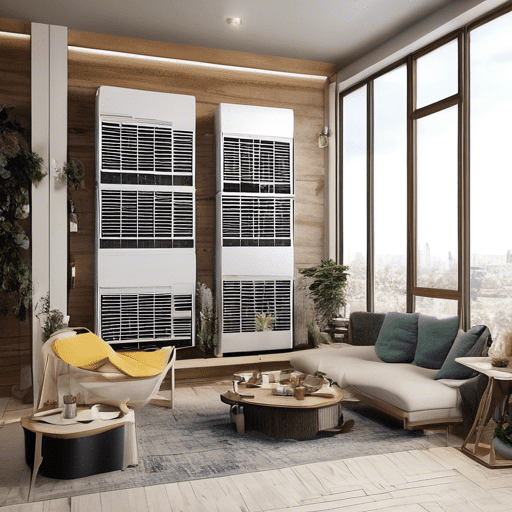When travelers check into a hotel, they expect more than just a place to sleep. They seek an unforgettable experience

Efficiency is a top priority in apartment living, and the HVAC (Heating, Ventilation, and Air Conditioning) system plays a central role in achieving it. Unfortunately, common HVAC problems can often lead to energy wastage, resulting in increased utility bills and a larger carbon footprint. In this blog, we will explore how to identify and fix these common HVAC issues in apartment buildings, focusing on MEP (Mechanical, Electrical, and Plumbing) Design and Engineering solutions. As experts in HVAC design for apartments at InnoDez Engineering, we are committed to optimizing energy efficiency.
Efficient HVAC systems lead to reduced energy consumption, resulting in lower utility bills for both apartment residents and property owners.
Reducing energy wastage in HVAC systems is crucial for reducing greenhouse gas emissions and minimizing the environmental footprint of apartment buildings.
Efficient HVAC systems help maintain a comfortable indoor environment, ensuring that residents are satisfied with their living conditions.
To optimize energy efficiency, it’s essential to recognize and address common HVAC issues. Some of the most prevalent problems include:
Poor insulation in walls, windows, and ducts allows heat to escape during the winter and infiltrate during the summer, making the HVAC system work harder.
Gaps and cracks in the building envelope permit conditioned air to escape and outdoor air to infiltrate, causing the HVAC system to overcompensate.
Outdated or inefficient HVAC equipment can waste energy by operating less effectively than modern, energy-efficient alternatives.
An HVAC system that is too large or too small for the space it serves can lead to energy wastage due to overconditioning or inadequate cooling and heating.
Clogged filters and dirty HVAC components force the system to work harder, consuming more energy.
Neglecting routine HVAC maintenance can result in performance degradation, energy inefficiency, and increased repair costs.
To improve energy efficiency and address these common HVAC problems, consider the following solutions:
Upgrade insulation in walls, attics, and windows to minimize heat transfer and maintain a consistent indoor temperature.
Identify and seal gaps and cracks in the building envelope to prevent uncontrolled air infiltration.
Replace outdated HVAC equipment with modern, energy-efficient alternatives that meet the specific needs of your apartment building.
Have an HVAC professional assess and determine the appropriate size and capacity for your HVAC system to avoid energy wastage.
Establish a routine maintenance schedule to ensure filters and components are clean and the system operates efficiently.
Install programmable thermostats and smart controls that allow residents to optimize heating and cooling based on their schedules.
ERVs help improve energy efficiency by exchanging heat and humidity between incoming and outgoing air streams.
Implement zoning systems that divide the building into separate areas with individual climate control, reducing the need for overall conditioning.
InnoDez Engineering specializes in HVAC design for apartments and is committed to enhancing energy efficiency in residential buildings. Our expertise in MEP Design and Engineering enables us to provide comprehensive solutions for identifying and fixing common HVAC problems. We have a proven track record of delivering energy-efficient designs that reduce operating costs and environmental impact.
Efficient HVAC systems are vital for apartment living, with the potential to reduce costs, lower environmental impact, and enhance resident comfort. Identifying and addressing common HVAC problems is a proactive step towards achieving energy efficiency. By implementing the solutions mentioned in this blog and partnering with experts like InnoDez Engineering, you can master energy efficiency in apartment living, ultimately creating a greener and more sustainable future for all.
About Author
InnoDez